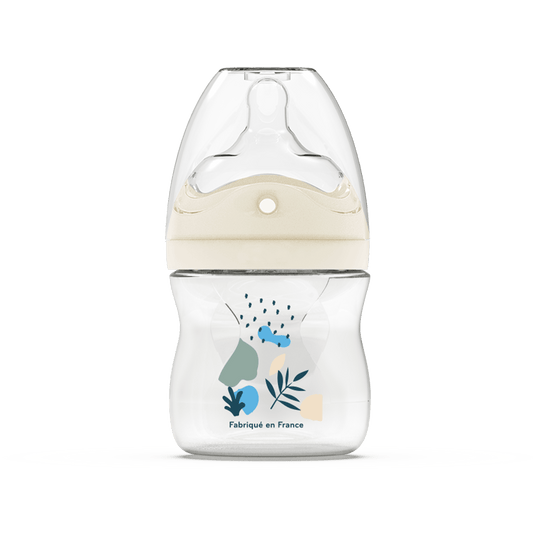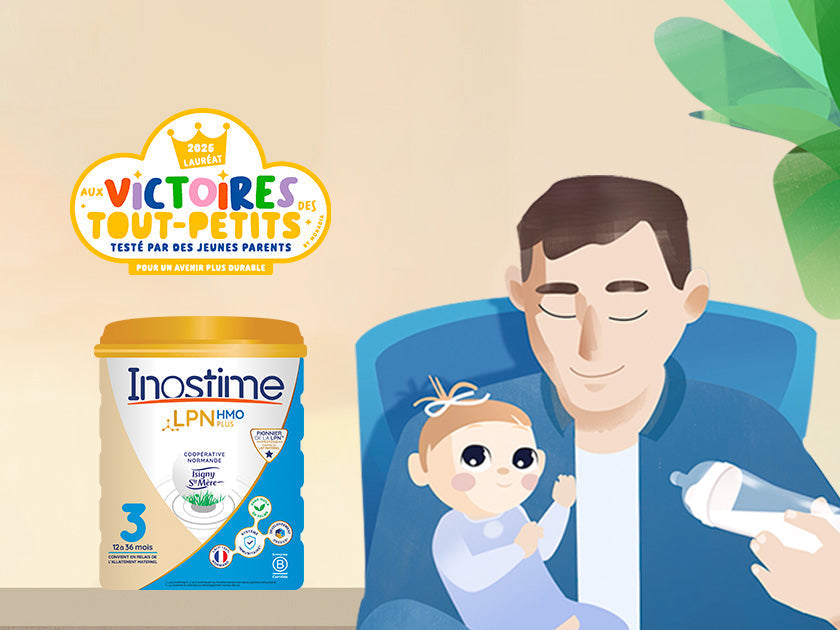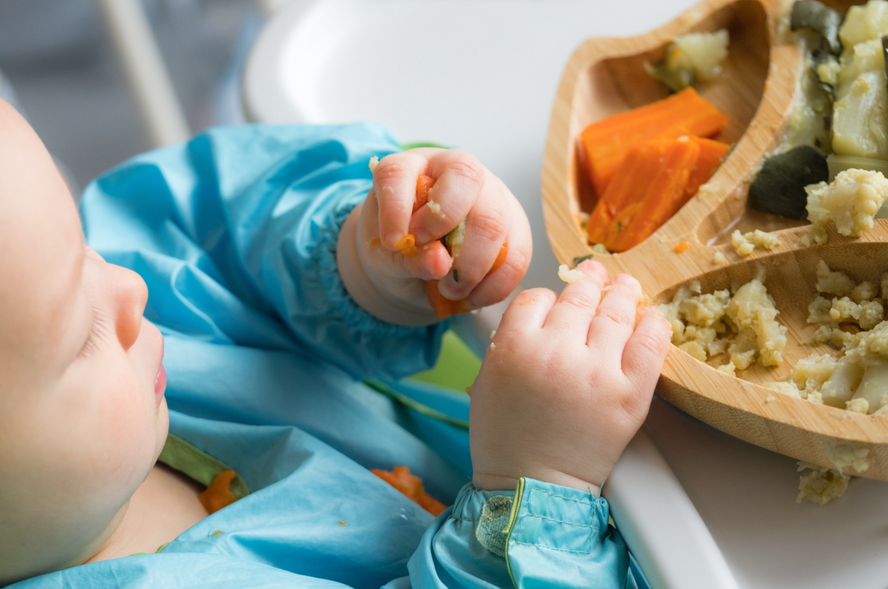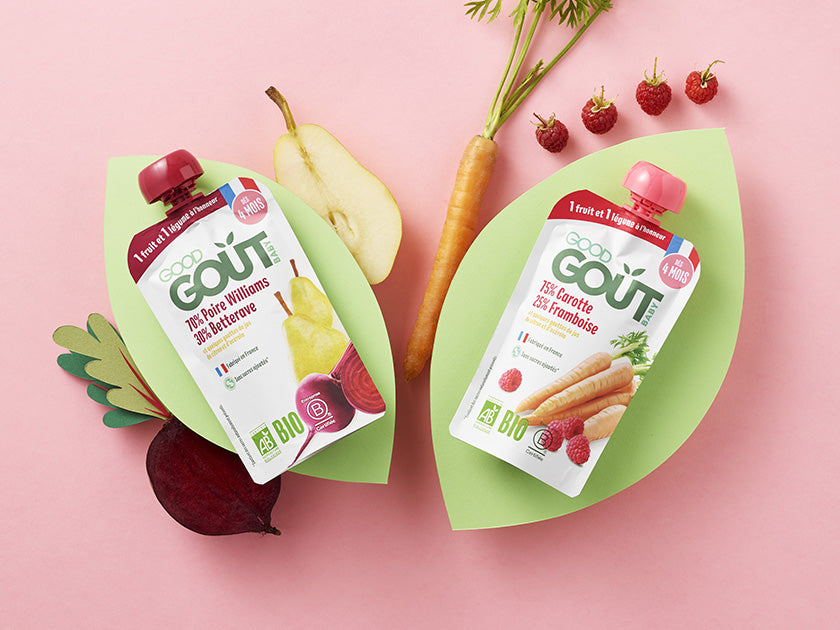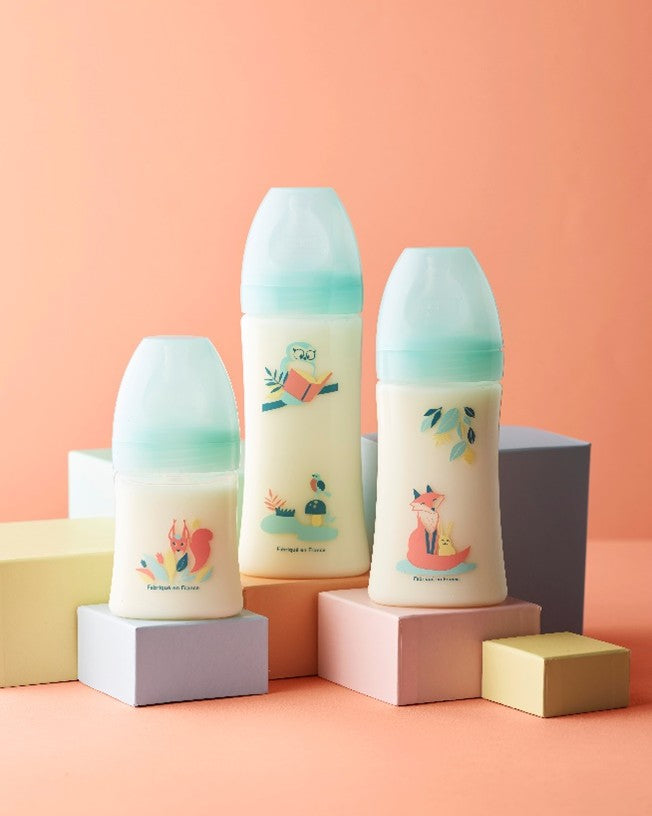If you're a regular follower of "Le Coin des Parents" by Good Goût, you know that awakening babies is a bit of a hobby of ours. All five senses, yes, Madam! And not just taste. Well, today we've decided to set out to conquer the planet of sounds for our budding little musicians. Let the music play!
The incredible musical adventure begins in mom's womb
If you were playing Instant Crush on repeat while you were pregnant, chances are your mini-me will become a Daft Punk fan before they can even talk. Fact or fiction?
Well, without being too caricatured, you should know that everything your baby hears (even in utero!) will gradually shape their musical ear. As soon as your fetus's auditory system is formed, sound vibrations (voice, music, various sounds) become perceptible to your child. So much so that we often advise expectant mothers to sing, talk or even hum nursery rhymes. At Good Goût, we believe in varying the references and pleasures by alternating "Gentille Alouette" and "J'adoooooooore regarder danser les gens"... without forgetting to start talking to them about their friends for life: fruits and vegetables! This way, the selection of little vegetable nursery rhymes .
Much more than the sound of music!
Diva voice or saucepan voice, it doesn't matter! What matters is to sing, sing, sing (and sing some more).
In "gentle lullabies" mode, your baby will gain relaxation, calm, and well-being. In short, perfect before going to sleep, but also throughout the day to reassure him with your familiar voice. Indeed, for the baby, the simple fact of hearing his mother's voice humming a lullaby, or that of dad gently murmuring words of love calms and reassures him. No need to beat around the bush: More than recorded music or elaborate instruments, the human voice is the element for which the young child shows the greatest interest.
The cherry on the cradle: in addition to amusing and comforting him, musical moments can serve as time markers (e.g.: a nursery rhyme about the bath before going to the bath...).
Furthermore, beyond this special bond with the child, the discovery of different sounds allows the newborn to develop key sensory and emotional abilities.
But it doesn't stop there! A child who has been exposed to music, and therefore stimulated by it during their early childhood, will find it easier to adapt to their environment when they start school, since their listening, concentration and curiosity will have been stimulated.
Patience, it's growing!
The great adventure can begin from birth with musical mobiles. At 6 months, your baby can begin the thrilling experience of rattles, music boxes, or even activity tables for the more adventurous.
Your child will quickly discover that they can make "noises" from objects in their environment. A small saucepan, a sheet of paper, a plastic bottle, a wooden spoon, a bunch of keys, even their own mouth... They will test them in different ways to discover the sounds they can make. This is part of their first musical explorations. You can therefore provide a few everyday objects (we still avoid electric epilators and the bin for glass). You will thus allow them to understand that when "I make such a gesture: I hear such a sound"!
Then, at the age of one, your child begins a phase of more intense sound discovery. Now independent, it's time for them to experiment with walkers and other musical pull-along toys that will allow them to combine motor skills and sound discovery. Think of the xylophone, which has become a huge fan and, despite the years, hasn't aged a bit. Let's also not forget the essential maracas and rain sticks brought back by grandma from one of her trips to the other side of the world.
From the age of three, your little one is ready to take the next step: musical awakening (sound exploration, first musical pleasures, singing, discovery of many instruments from around the world, collective creations, etc.). This activity, which allows the child to acquire auditory cues and coordination of their movements, is a true marvel.
Finally, we take the big step at the age of 6-7 by choosing our first instrument: a new horizon opens up to him...
Note to parents whose ears are sensitive (not to say irritated) to the slightest electronic sound coming out of a plastic mini-DJ mixer: hide the object of your nightmares while you introduce your child to the instruments you cherish most. For example, wooden objects, of various sizes and uses, create more natural and pleasant sounds.
Musical awakening with the family?
The experience of discovering sounds can also be shared with the whole family! Sound books, for example, are a way to accompany your little one in these first sound discoveries by involving all members of the family.
We have also selected a few for you: Reinette Apple and Api Apple published by Gründ, Instruments of the World by Mes petits imagiers or even The Orchestra by Larousse.
Another fun family-friendly option is the Philharmonic of Paris . It offers family music workshops for children as young as 3 months old. These activities aim to encourage interaction between family members through a variety of musical activities and exhibitions—in short, it's an opportunity not to be missed!





